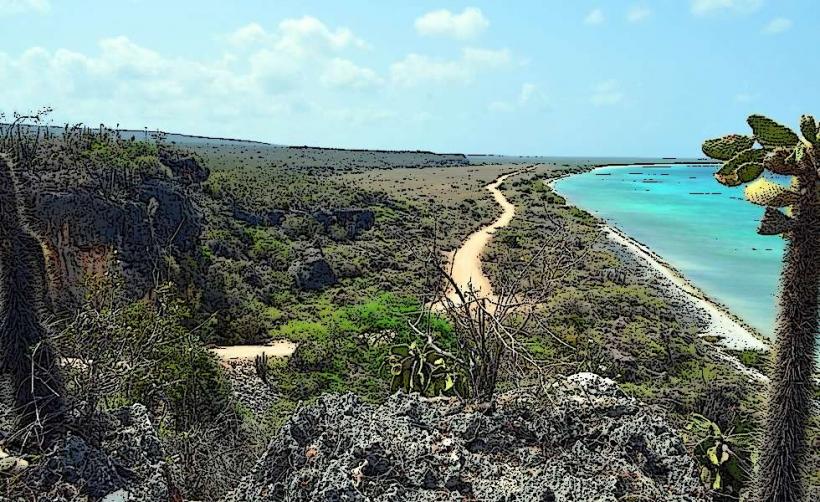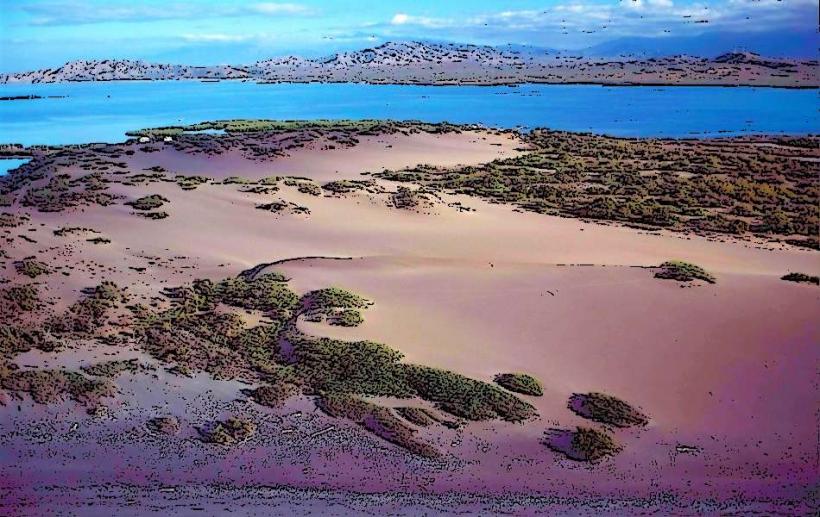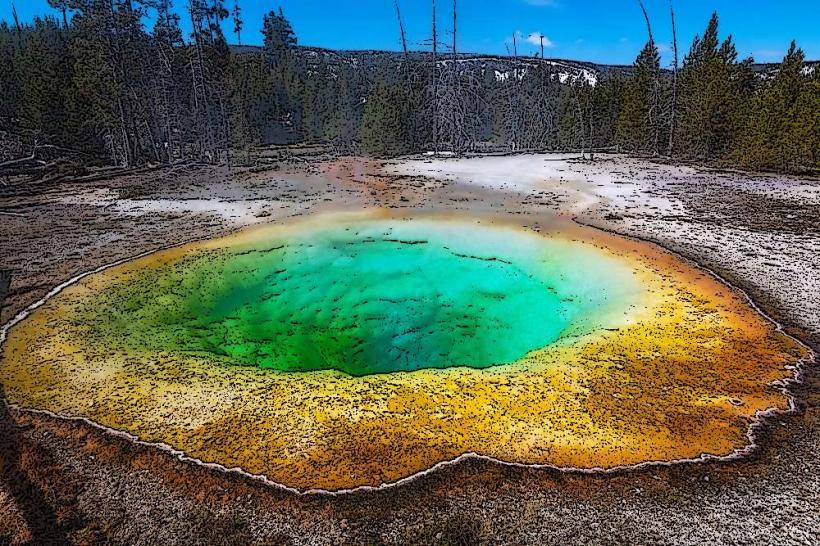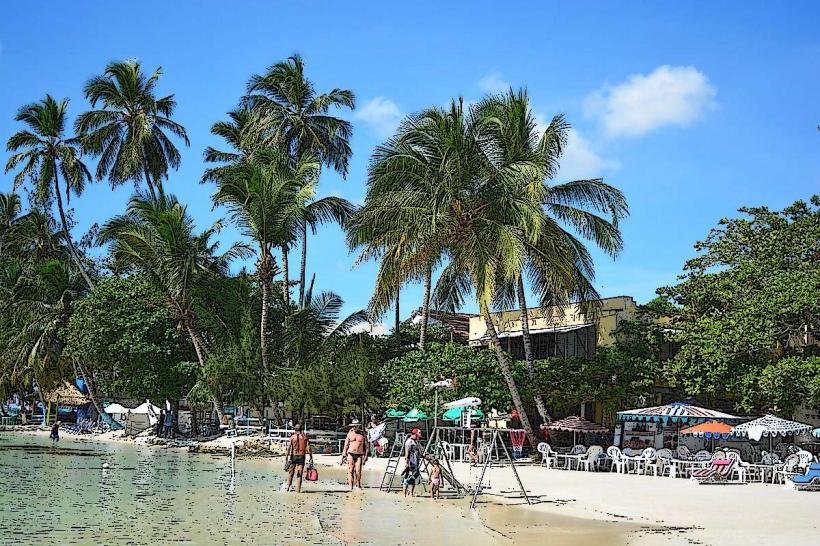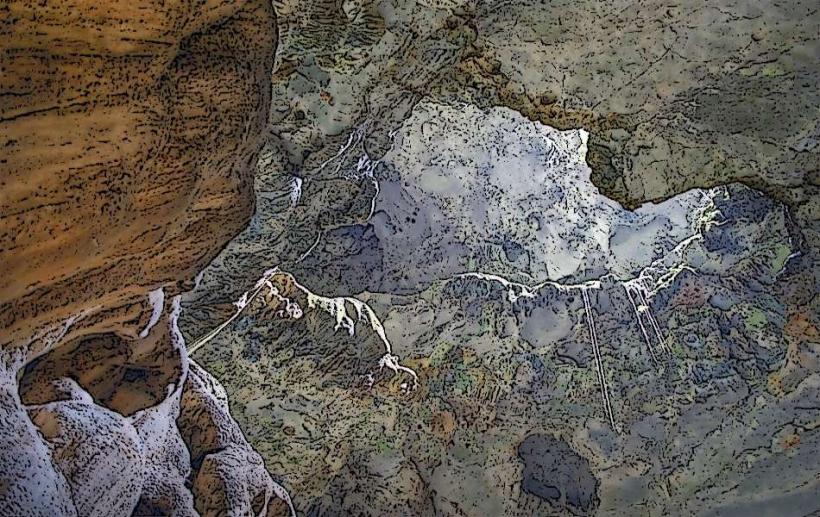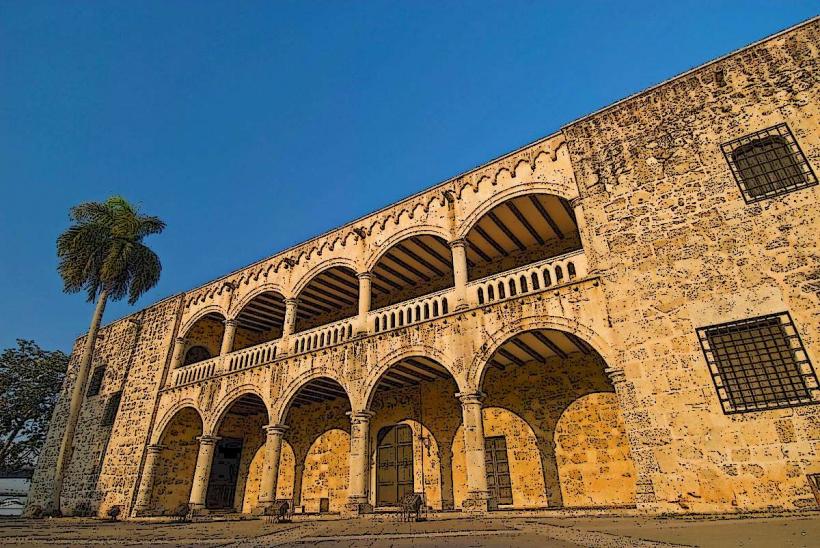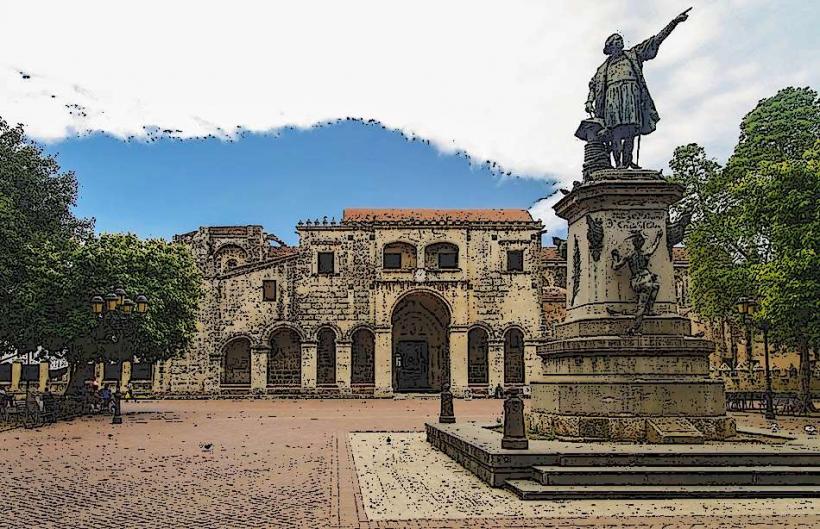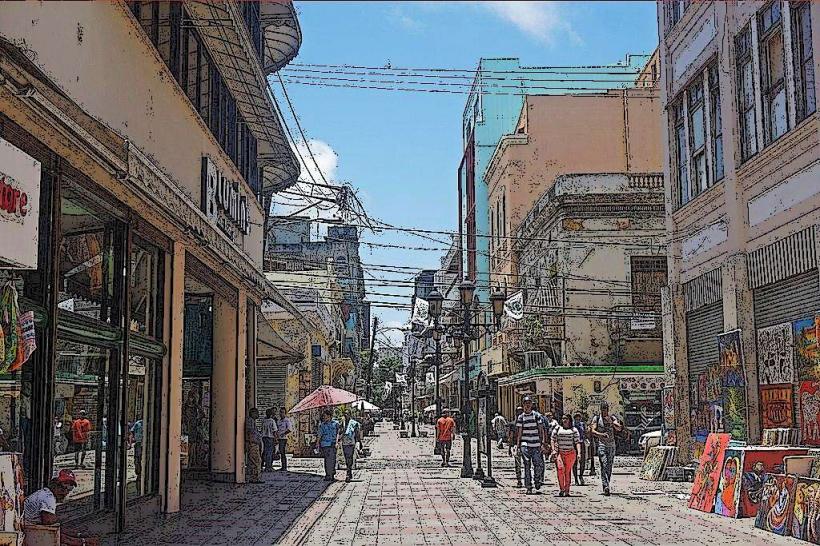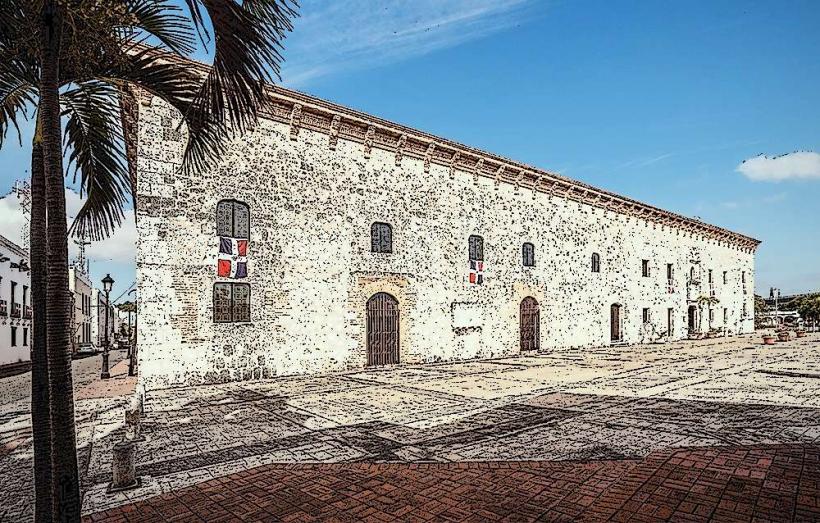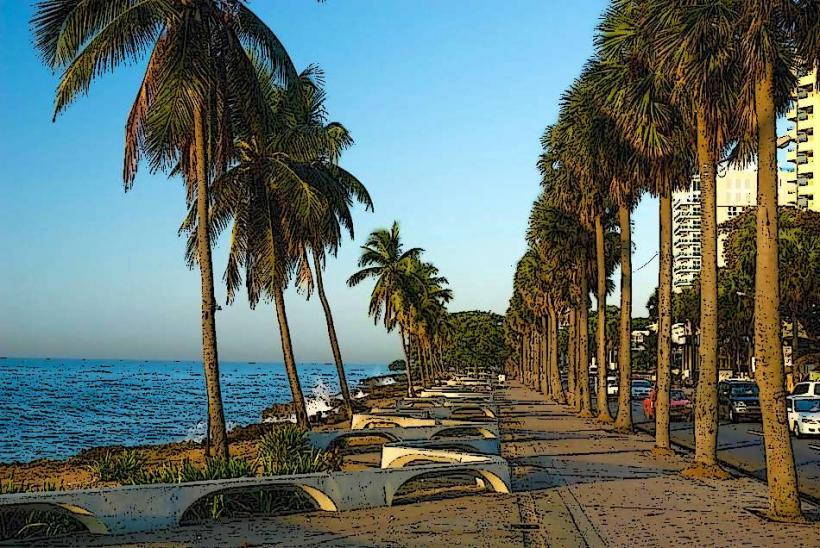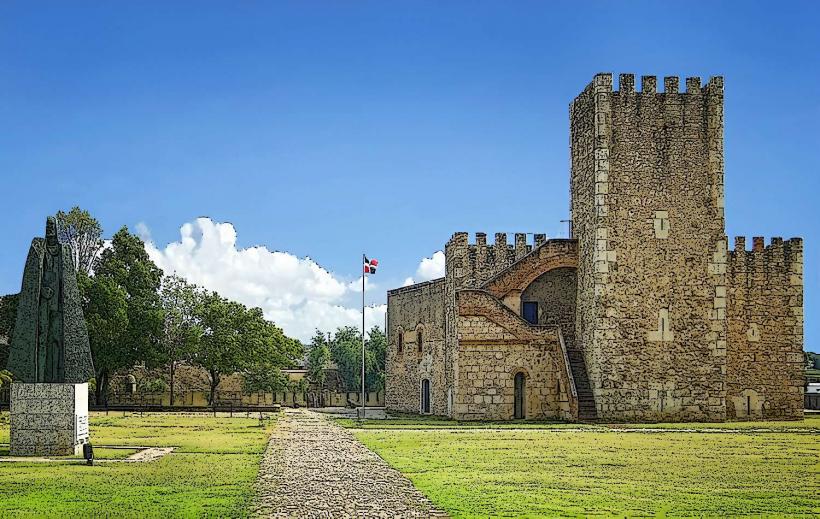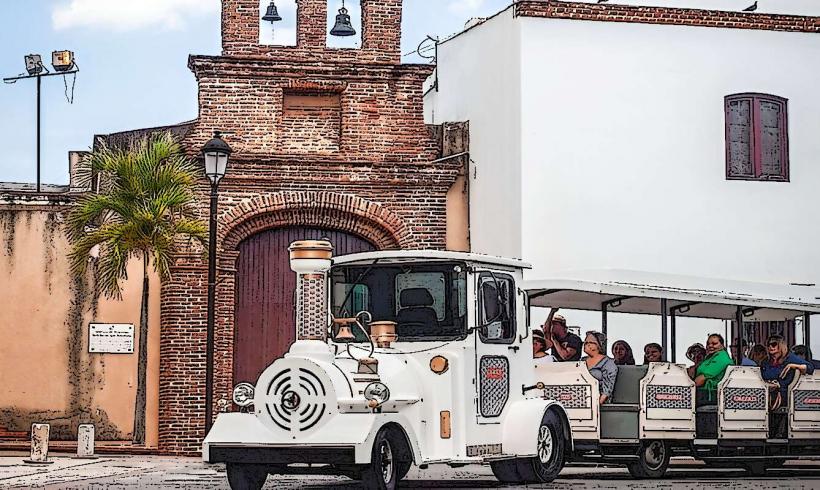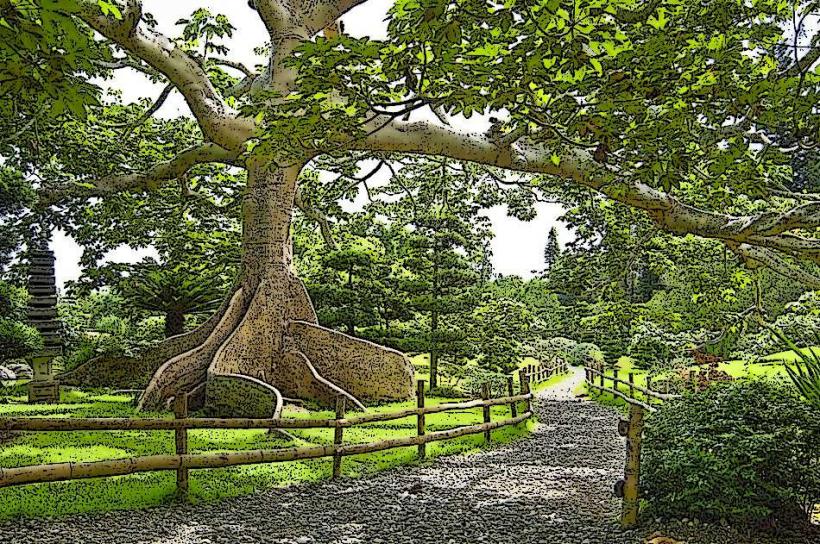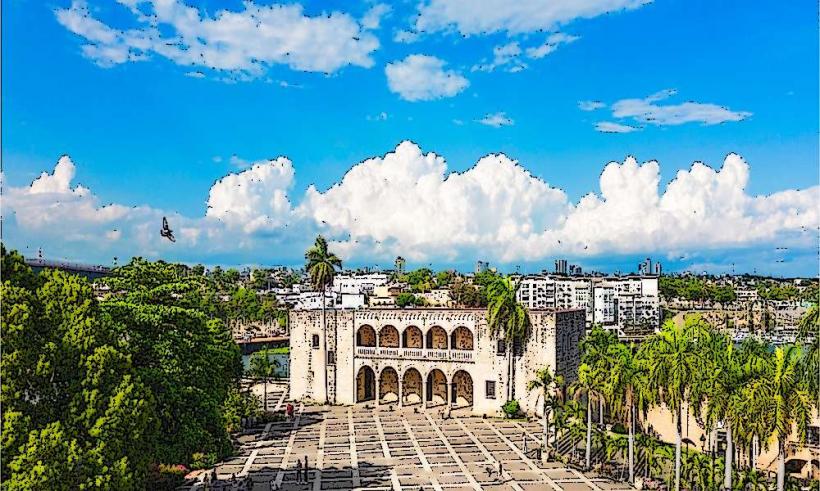Information
Landmark: Las Salinas de BaníCity: Santo Domingo
Country: Dominican Republic
Continent: North America
Las Salinas de Baní, Santo Domingo, Dominican Republic, North America
Las Salinas de Baní (Salt Flats of Baní) is a large and historic salt production area located in Peravia Province, on the southern coast of the Dominican Republic. This region is known for its extensive salt evaporation ponds, where salt has been harvested for centuries, making it an important part of the local economy and culture. The salt flats are not only an industrial site but also a significant ecological area, home to diverse wildlife, particularly migratory birds.
Overview of Las Salinas de Baní
Location and Geography:
- Las Salinas de Baní is located near the town of Baní, about 20 kilometers (12 miles) west of the town center and approximately 90 kilometers (56 miles) west of Santo Domingo.
- The area consists of vast salt flats, which are part of a larger coastal ecosystem that includes mangroves, wetlands, and beaches. The salt flats are fed by saltwater from the Caribbean Sea, and the evaporation process occurs naturally through the strong sun and dry winds.
Salt Production:
- Salt harvesting in Las Salinas de Baní has a long history, with indigenous peoples and later Spanish settlers using the area to produce salt. Today, the salt flats continue to be a significant source of industrial salt, which is extracted through the traditional process of evaporation.
- The salt flats cover a vast area, and salt ponds are carefully managed to maximize the evaporation process, where seawater is allowed to flow into the ponds and, over time, evaporates under the hot sun, leaving behind salt crystals that are later harvested. The salt is used for a variety of purposes, including food preservation, industrial applications, and even as a local seasoning.
Ecological and Wildlife Significance
Birdwatching:
- Las Salinas de Baní is an important habitat for migratory birds, particularly flamingos. The area is a designated wetland and provides a critical stopover for birds traveling along the Caribbean migratory route.
- Flamingos are often seen in large numbers in the salt flats, especially during the winter months. The salt flats and surrounding wetlands offer the birds a place to rest, feed, and nest, making it one of the prime locations in the country for birdwatching.
- Besides flamingos, visitors may spot other migratory species such as herons, egrets, pelicans, and sandpipers, as well as native species like cormorants and seagulls.
Mangrove Ecosystem:
- The salt flats are bordered by mangrove forests, which are crucial for the local ecosystem. The mangroves play an important role in protecting the coastline from erosion, acting as a natural barrier to storms and floods.
- The mangroves also support a variety of wildlife, including fish, crabs, and shellfish, and are an important habitat for the young of many marine species.
Things to Do at Las Salinas de Baní
Birdwatching and Nature Observation:
- Las Salinas de Baní is an excellent destination for birdwatching. Visitors can observe large flocks of flamingos and other migratory birds as they wade through the salt ponds or rest in the wetlands.
- There are various viewpoints and observation towers around the salt flats where visitors can stop and take in the scenery, often with the help of local guides who are familiar with the area’s wildlife.
- Birdwatching tours are available and can be arranged with local eco-tour operators.
Eco-Tourism:
- The area is part of the Las Salinas Natural Reserve, which includes a mix of salt flats, coastal ecosystems, and protected wetlands. Eco-tours are available, which take visitors through the mangrove forests, the salt ponds, and other areas of interest.
- Guided tours offer insights into the history of salt production, the role of the salt flats in the local economy, and the diverse flora and fauna of the area. Visitors can also learn about the environmental importance of the wetlands and the conservation efforts being made to protect the region.
Photography and Scenic Views:
- The salt flats provide dramatic landscapes, especially in the early morning or late afternoon when the light enhances the reflections and textures of the salt ponds. The contrast between the salt white landscape, the blue sky, and the green mangroves creates unique and beautiful photo opportunities.
- Wildlife photography is also popular in the area, especially for bird enthusiasts who can capture images of the flamingos and other birds in their natural habitats.
Beach Visits:
- Las Salinas de Baní is located near several beautiful beaches. Playa Las Salinas and Playa de Bani are both within a short distance from the salt flats and offer visitors the opportunity to relax by the sea. These beaches are often less crowded than other tourist spots in the Dominican Republic, making them a peaceful retreat.
- The area around Playa Las Salinas is also known for kite surfing and windsurfing, thanks to the strong winds that blow across the region.
Access to Las Salinas de Baní
Transportation:
- Las Salinas de Baní is easily accessible by car from the town of Baní, which is a short drive away (about 20 km or 12 miles). The region can also be reached from Santo Domingo by taking the Carretera Sánchez highway, which takes about 1.5 to 2 hours.
- Public transportation is not readily available to the salt flats, so the most convenient option for visitors is to rent a car or join a guided tour from nearby towns.
Accommodations:
- There are a number of small hotels and guesthouses in Baní, which offer accommodations for those wishing to explore the region. The town also offers several restaurants and local markets for visitors to experience the local culture.
- For a more rustic experience, there are eco-lodges and beachside accommodations near Playa Las Salinas and Playa de Bani, where visitors can enjoy a more nature-focused stay.
Best Time to Visit Las Salinas de Baní
- The best time to visit Las Salinas de Baní is during the dry season, which runs from December to April, when the weather is sunny and rainfall is minimal. This period is ideal for birdwatching, beach visits, and outdoor activities like eco-tours and photography.
- The rainy season (May to November) brings occasional showers, which can make some areas less accessible, but it is still a good time for visitors interested in the lush vegetation and migratory bird populations.
Conclusion
Las Salinas de Baní is a fascinating and diverse destination in the Dominican Republic, offering a combination of eco-tourism, historical salt production, and wildlife observation. Whether you’re interested in exploring the salt flats, birdwatching, or simply enjoying the nearby beaches, the region provides a unique opportunity to experience a lesser-known side of the island. The area’s blend of natural beauty, historical significance, and ecological importance makes it a must-visit for nature lovers, photographers, and those looking to explore the Dominican Republic beyond its more tourist-heavy locations.

